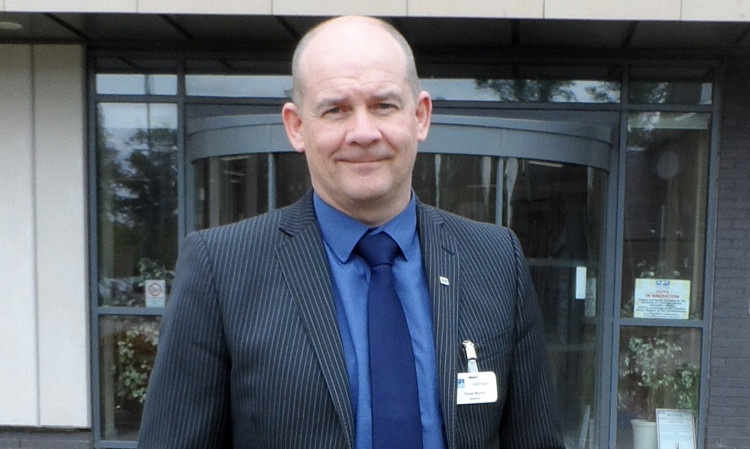The new governor of Perth Prison has said there is “no magic bullet” to control drugs problems among inmates.
Fraser Munro, who has taken over from Mike Inglis, told The Courier that the Edinburgh Road establishment takes measures to try to prevent illegal substances being smuggled in and that he is looking forward to the challenges ahead.
Having recently been in charge at HMP Castle Huntly, Mr Munro said he views his new role as a “natural step” in his professional development.
“Having only been in post a little less than a week, my immediate focus will be on getting to know what it is that we do, who does it, what we do well and what we need to develop,” he said.
“HMP Perth and her staff will have a significant role to play, alongside our community partners, in turning this vision into a reality.
“I very much look forward to leading the establishment through this period of change and also building on the already strong collaborations with our community partners.”
He underlined the size of the task at hand to control drug misuse at the prison.
“This is no magic bullet but we believe our approach presents the best possible chance to minimise the harm and reduce the blight that substance misuse inevitably causes,” he went on.
“Substance misuse has a reach which extends way beyond the prison walls and into the community.
“We take a recovery approach to substance misuse and, with our NHS Tayside and police partners, manage this in a number of ways.
“We seek to prevent substances being introduced to the prison and will take action against anyone that we capture trying to do so.”
He continued: “We seek to educate those who come into prison about the dangers of substance misuse and we seek to provide ongoing care and support to aid the recovery of those who present with a substance misuse issue.”
Mr Munro, who joined the prison service almost 27 years ago as an officer in Inverness, said the Scottish Prison Service (SPS) has a “fantastic record” of managing the secure custody and good order of its prisons.
Even so, he believes this is not enough if the prison authorities are unable to “turn” people’s lives around.
“The real challenge will be to develop the right services and community collaborations that really start to make a positive impact on reoffending rates,” he said.
“Your readers will not be surprised and will appreciate that simply locking people up actually does nothing to stop people reoffending when they are released.
“We therefore need to do more rehabilitative work with those in our care, help people to understand and appreciate that there is another way to live their lives, that they are capable of making better choices for themselves, that we will support them to do this, that they have strengths that can be drawn upon, and that they can build a positive, law-abiding life after prison something that surely all our communities want.
“I relish this challenge.”
